Beata Bruggeman-Sekowska The Polish Round Table Talks started on February 6 in the Namiestnikowski Palace in Warsaw and lasted till April 5 1989. The government initiated the discussion with the leaders of opposition in order to weaken social unrest. 29 representatives of the government, 26 representatives of the opposition, including members of banned “Solidarność” […]
By Beata Bruggeman-Sekowska On November 11, 1918, Józef Piłsudski (Poland’s Chief of State) took over the authority over the Polish army from the Regency Council (in Polish: Rada Regencyjna or Rada Regencyjna Królestwa Polskiego. It was a semi-independent and temporarily appointed highest authority, head of state, in partitioned Poland during World War I). He […]
By Beata Bruggeman-Sękowska On September 19, 1940 Witold Pilecki, a member of the Secret Polish Army, let himself get caught and arrested by German policemen in Warsaw in order to be sent to Auschwitz death camp. His intention was to infiltrate the camp, set up a resistance network there and gather information about the death […]
By Beata Bruggean-Sekowska On September 17 about 1 million troops of the Red Army crossed the eastern borders of Poland starting the red invasion of Poland. It was sixteen days after Nazi Germany invaded Poland from the west. The invasion ended on 6 October 1939 with the two-way division and annexation of the entire […]
By Beata Bruggeman-Sękowska On September 8, 1968, Ryszard Siwiec committed suicide by public self-immolation in protest against the Warsaw Pact invasion of Czechoslovakia. He set himself on fire during the nationwide harvest festival at the Stadion Dziesięciolecia (stadium) in Warsaw, Poland in the presence of the leaders of the Polish United Workers’ Party, diplomats and 100,000 spectators. […]
By Roger MOORHOUSE September 1 is the conventional start date for the European war. But little in life is set in stone. Of course, a pedant might want to point out that the British and French only declared war on Germany on September 3, so that date marks the expansion of a German-Polish war […]
Mr Jacek Jaśkowiak, mayor of Poznań prepared an exclusive statement for EIOCO on the 65th anniversary of Poznań uprising. By Beata Bruggeman-Sekowska Statement of the Mayor of Poznań Mr Jacek Jaśkowiak On June 28, 1956, the road to freedom began in Poznań. Workers from Poznań factories took to the streets […]
Beata Bruggeman-Sekowska During the parliamentary elections on the 4th of June 1989 Polish people voted on the Citizens’Committee, an opposition group around Lech Wałęsa, which led to the end of communism in Poland. This in turn led to the wave of changes across Central and Eastern Europe. These were the first elections in Poland […]
On September 28 the Montesquieu Institute published an analysis by Beata Bruggeman-Sekowska. She expresses her concerns about some similarities between actions taken by the ruling party in Poland and totalitarian communist tactics. She stresses that Poland faces various issues and is on the crossroads again. Polish déjà vu Beata Bruggeman-Sękowska 40 years ago Poland […]

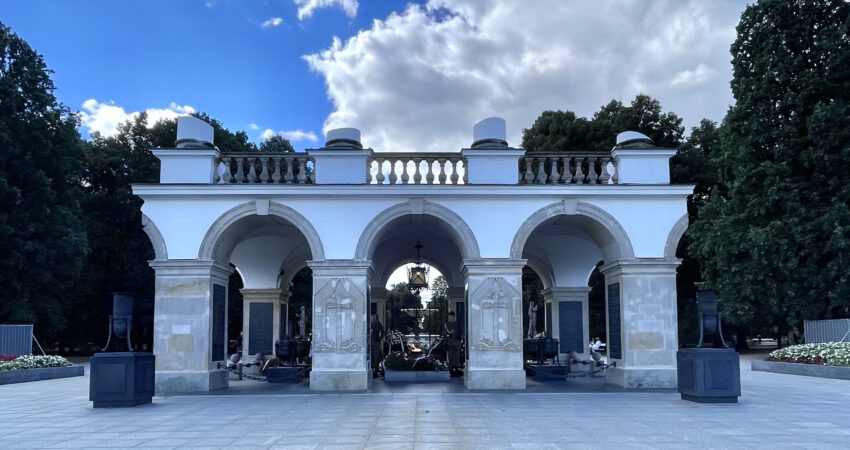
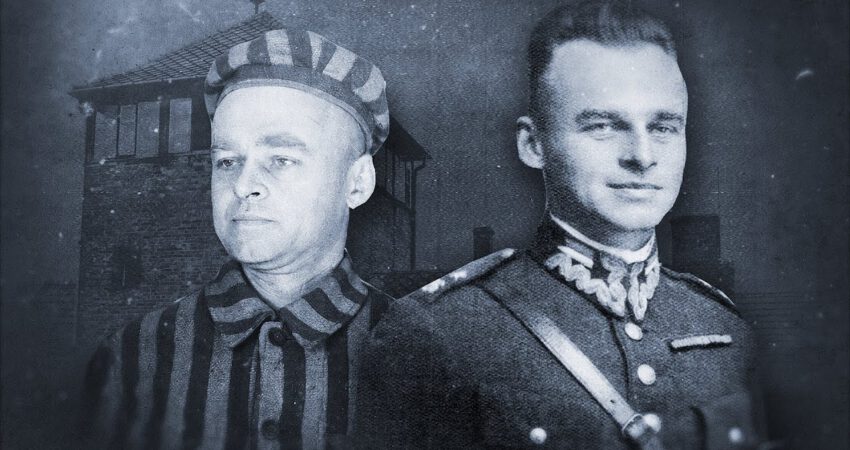
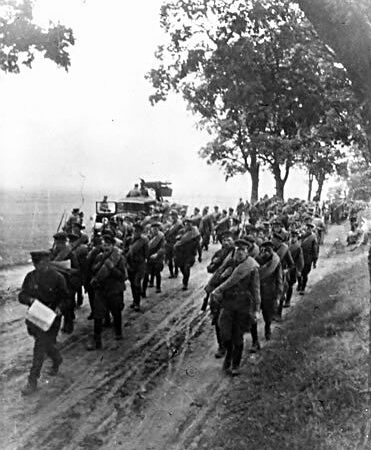
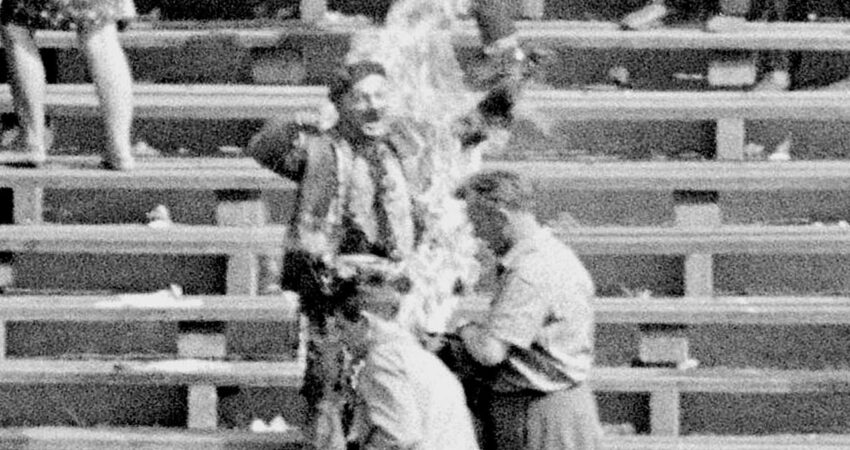
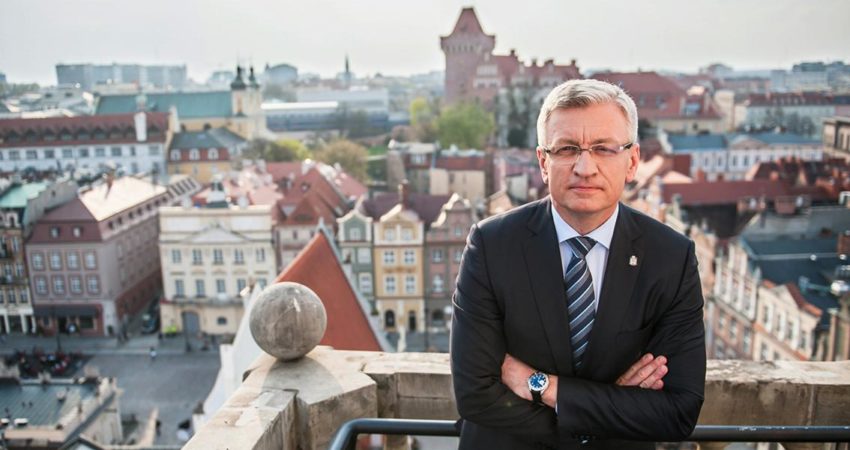
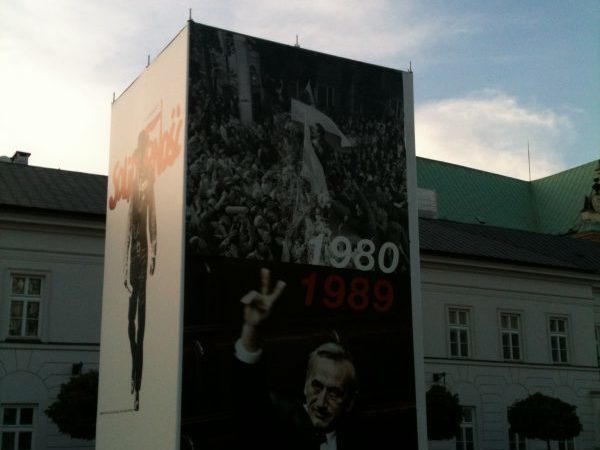
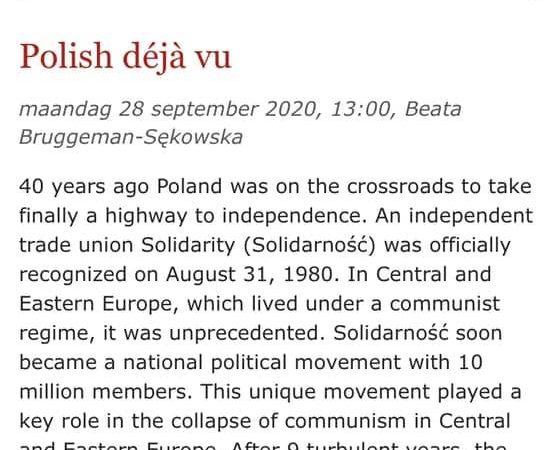
Follow Us!